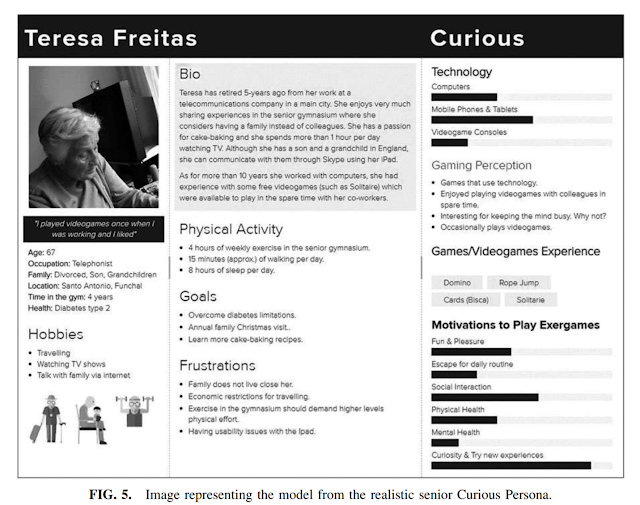Lessons Learned from Gamifying Functional Fitness Training Through Human-Centered Design Methods in Older Adults
The design of meaningful and enjoyable Exergames for fitness training in older adults possesses
critical challenges in matching user’s needs and motivators with game elements. These challenges are often due
to the lack of knowledge of seniors’ game preferences and technology literacy as well as a poor involvement of
the target population in the design process. This research aims at describing a detailed and scrutinized use case of applying human-centered
design methodologies in the gamification of fitness training routines and illustrates how to incorporate seniors’
feedback in the game design pipeline. We focus on how to use the insights from human-centered inquiries to improve ingame elements, such as mechanics or esthetics, and how to iterate the game design process based on playtesting
sessions in the field. We present a set of four Exergames created to train the critical functional fitness areas of older adults.
We show how through rapid prototyping methods and multidisciplinary research, Exergames can be rigorously
designed and developed to match individual physical capabilities. Moreover, we propose a set of guidelines for
the design of context-aware Exergames based on the lessons learned. We highlight the process followed; it depicts 19 weeks of various activities delivering particular
and actionable items that can be used as a checklist for future games for health design projects



Comments